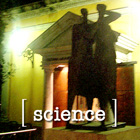
|
OXFORD'S LORD MAY SAYS SCIENCE ENTERING 'DANGEROUS TIMES' 30 November 2005 The BBC reports "Fundamentalism is hampering global efforts to tackle climate change, according to Britain's top scientist." Lord May used his departing speech as president of the Royal Society to warn researchers, policy-makers and the public that science is under attack from fundamentalist tendencies and organizations, even as it faces "non-linear" biological and environmental threats. He noted the unprecedented problems facing science and research, in the form of global climate change, as spurred by human activity, the loss of biodiversity and the resurgence of new strains of dangerous diseases. He warned that it was becoming urgent for scientists to defend their work against the "denial lobby", which seeks to serve the narrow interests of its backers by preventing news about climate change from becoming accepted policy, though it is already accepted science. As humanity faces an era of uncertainty, of the weakening of the world's biological and evolutionary resilience, complex solutions, based in hard science and with a mind to broadening study of the natural world are needed. Significantly, Lord May observed "Sadly, for many, the response is to retreat from complexity and difficulty by embracing the darkness of fundamentalist unreason." May called for open inquiry into scientific facts related to the debate on climate change, carbon-emissions, nuclear power and other areas, noting that non-governmental organizations both pushing nuclear and pushing to stop it are not immune to the temptations of ideological fundamentalism and distorted reasoning. There is an urgent need to support the general trend of modern civilization toward more widespread open scientific inquiry, in order to confront difficult challenges. He also took issue specifically with the growing number of fundamentalist groups pushing "creationism" in the US. He noted that "intelligent design" is a threat to the integrity of modern scientific inquiry, based not on any evidence at all, but merely on a single, unsupported presumption. He described the role of scientists as "being more energetic as citizens - getting out there and trying to convince people that that's not a very wise way to behave". [For more: BBC] |
||||||||||
|
|||||||||||








